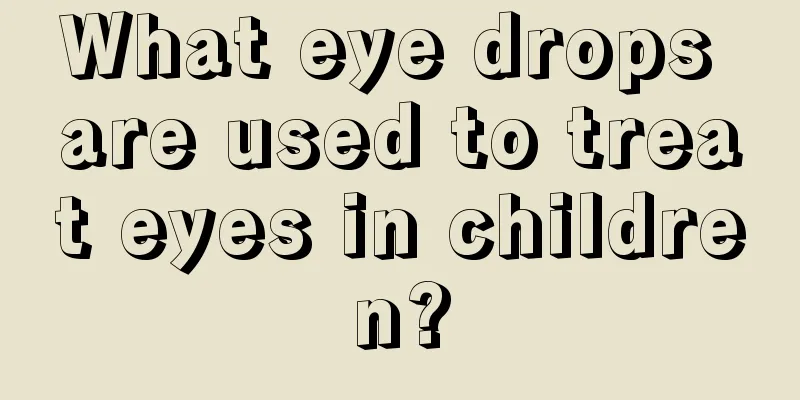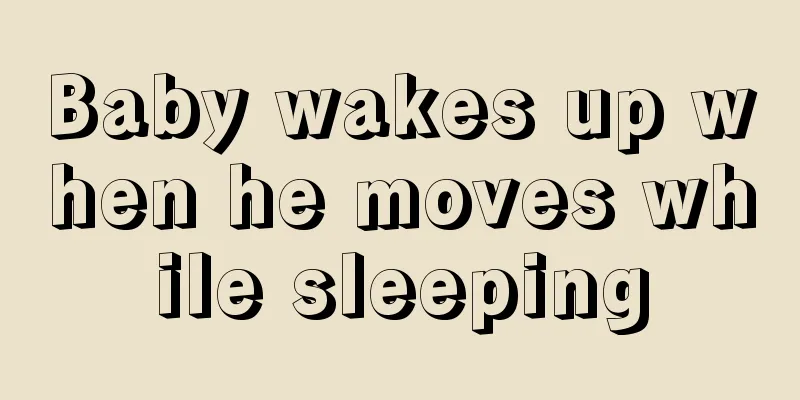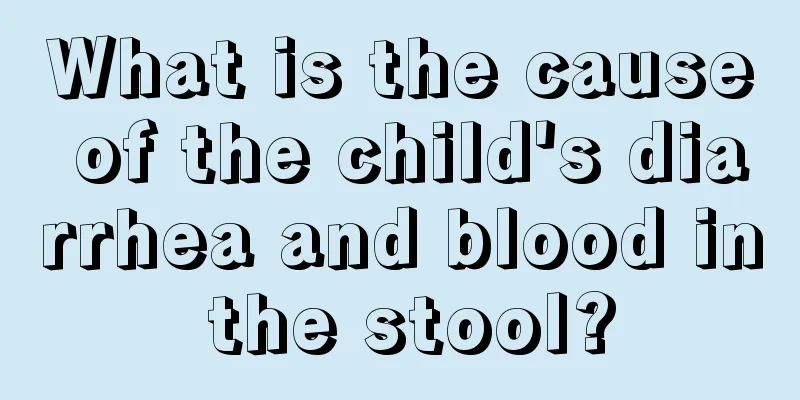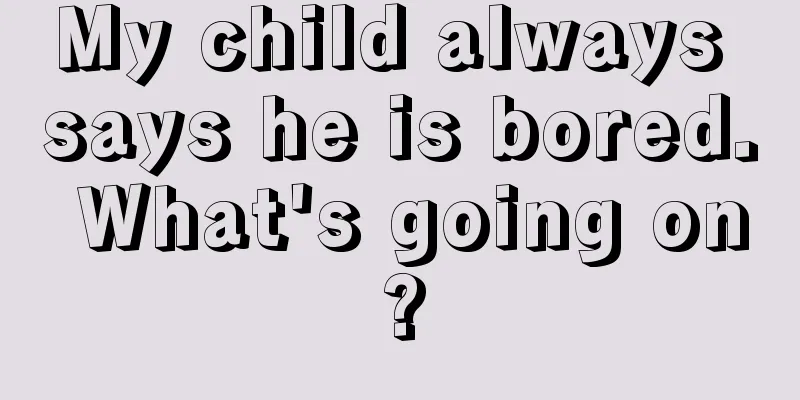Behavioral habit formation education
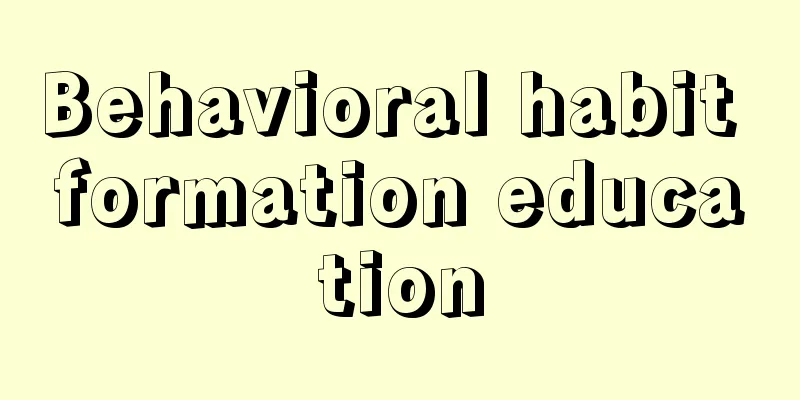
|
Behavioral habits are what parents should focus on cultivating during their children's growth. Not to mention noble qualities, good behavioral habits are an important factor in integrating into this society. Moreover, the scope of behavioral habit-forming education is quite broad. Each child’s situation is different, and the methods and focus of education are also different, but some ideas are worth learning. So, what are the educational methods for developing behavioral habits? Let’s take a look below.
Observe enthusiastically and pay attention to performance. In implementing "form-forming education", the priority is to ensure that it is targeted at students' age characteristics, local realities, and their daily behavioral habits. Therefore, as educators, we must pay attention to and observe students' words and actions in order to choose the best educational methods and "prescribe the right medicine." For example, when I found that a boy in my class was restless and spitting for several days in a row, I immediately became alert and asked him what was wrong. He said it was nothing. Is he really okay? Impossible. Why would he spit out saliva for no reason? I contacted his parents. The parents said that they always found cigarette butts in the bathroom in recent days. This is most likely the reason for the "spitting". I immediately found a lot of information about "The harms of smoking to health", held a small exhibition in the class, and then held a discussion meeting. After this activity, the whole class had a better understanding of the harmful effects of smoking, and the student who "spitted" immediately came to "privately chat" with me. He said that he followed a few people in society and they always asked him to smoke. After communicating with them, he no longer associated with them and stopped smoking. Sure enough, not long after, the student stopped spitting. Home-School Interaction Home-school communication is indispensable. Some students have a "two-sided personality". Some are "good kids at home and naughty students at school", while others are the opposite. Therefore, we cannot make judgments based solely on students’ performance in school. The "two-sidedness" of some students is not reflected in the difference between home and school, but in "inconsistency between appearance and reality". Although most students are relatively simple and not good at hiding their inner thoughts, some students may have a rich inner world that is different from their daily behavior, or even completely opposite, due to the particularities of their growth process and living environment. This type of students also need to be fully understood through teachers' care, communication, diary exchange and other measures. I once had a student like this: she was the class monitor and was excellent in all aspects. For a while, her eyes occasionally wandered and she sometimes stared blankly during class. When I talk to her, she always says, "It's really okay, please don't worry, teacher." The parents said that everything was normal at home, and the child did housework and homework as usual when he got home. There was just a boy who often called, and the child became a little impatient every time he answered the phone. From my feeling, this student has something unspeakable. So I wrote this in her weekly diary: "You haven't Do you think I am your friend?” After the weekly diary was distributed, she handed it in again immediately, and inside it was written: “Teacher, I really admire you - I didn’t reveal anything. Yes, I have been feeling complicated recently, because I have encountered something that I cannot explain! I will tell you in my weekly diary, OK?" The "door of my heart" was about to open - after several weekly diary exchanges, she finally opened her heart. It turned out that a boy from the next class "proposed" to her, saying that if she did not agree, he would not study. She could not agree, and was worried that the boy would really abandon his studies because of this. She did not dare to tell others, fearing that it would hurt the other party's self-esteem, so she did not know what to do. After finding the "cause of the disease", I felt relieved. Later, with my help, the problem was finally properly solved.
How much every teenager longs to see his own achievements and how much he longs for others to recognize his strengths and skills. This desire provides unlimited possibilities for the comprehensive development of the spirit. ----(Former Soviet educator) Sukhomlinsky Leading by example is of utmost importance. “A good teacher should be knowledgeable and a role model” and “Actions speak louder than words” are wise sayings that many teachers understand. But “understanding” does not mean you can do it well. Just imagine, if a teacher is "very fond" of "polite" students and ignores "impolite" students; or stands on the podium and smokes while educating students about how smoking is bad; or swears while blaming students for being uncivilized, what will be the consequences? Careful teachers will easily find that teachers who write on the blackboard in a "dragon-flying and phoenix-dancing" manner, have students who write in a sloppy manner; teachers who write on the blackboard in a "serious" manner, have students who write neatly. How sure Be more affirmative of your children Everyone has a psychological need to be affirmed. From a psychological perspective, children's evaluation of themselves mostly comes from the evaluation of people around them. If the people around him give him positive and affirmative evaluations, then he will feel that he can do it and will build up self-confidence in life. On the contrary, if people around them always give them negative comments, children will feel that they are worthless, and thus develop a sense of inferiority and incompetence psychologically, and even have the idea of giving up. A little praise and encouragement can sometimes have a lifelong impact on a child. Educational methods The educational form should avoid being monotonous. Due to the age characteristics of students, when implementing "form-forming education" for them, we must avoid monotonous forms, especially blind preaching, which will make students "drowsy". Therefore, we must adopt diverse and lively educational measures based on the actual situation. For example, after discovering that many students in the class did not understand their parents' efforts or difficulties and threw tantrums at home, I organized a team meeting with the theme of "Only Mom is Good in the World" and incorporated the cases I learned into sketches, crosstalk, short plays and other programs. Parents were also invited to participate in this event. During the activity, parents had mixed feelings and students felt extremely guilty. When the skit came to a question - "Should I buy these pants?", the prototype character of the show burst into tears and admitted his mistake to his mother on the spot. For example, during a spring outing, a student who usually liked to make trouble "deserted" and went to another place by himself, causing everyone to panic and look for him everywhere. After finding it, the student felt bad but thought it was "no need to make a fuss". In response to this situation, in a subsequent Chinese language test, I wrote a fairy tale called "Found the Little Bear" specifically for this purpose, and asked students to write a review after completing the reading assignment. The article is about: On the way to a forest sports meeting, the little bear ran around everywhere due to his curiosity and finally got lost. The entire bear team missed the opportunity to compete in order to find the cubs, and the mother bear was seriously injured after being accidentally caught in a hunter's trap. When the student was completing this question, he recalled the scene in which his math teacher broke his arm and had his clothes stained with blood while trying to find him. He felt extremely regretful and wrote a heartfelt reading note. After that, his performance improved a lot.
Whether in the process of studying or entering the society after graduation, the good behavioral habits and ideological qualities have benefited them a lot, and their chances of success are of course quite high. Decades ago, the great people's educator Mr. Tao Xingzhi earnestly warned all educators: "Primary schools should not only cultivate primary school students, but also cultivate little teachers. Such primary schools can be considered modern and progressive primary schools. If children are only taught to read books but are unwilling to teach others, then it is just a factory for producing little nerds or little knowledge slaves." What Mr. Tao said about "cultivating little teachers" also requires us to attach importance to "education for formation" and let students learn the principles of being a human being. |
<<: What to do if you get a bump on your forehead?
>>: Why don't babies like to drink milk powder?
Recommend
Why does my child keep clearing his throat?
Many mothers will ask, children always feel like ...
Can children eat fish when they have a cough?
Children who often catch colds and coughs are a h...
What is the cause of abdominal bloating in newborns?
We often see abdominal bloating in newborns in ou...
What should I do if my child has corneal inflammation?
If an adult's cornea is inflamed, it is calle...
What to do if your child has smelly feet? Treatment for children's smelly feet
In life, many children have the problem of smelly...
The child is crying because of teething
Although teething is an important sign of healthy...
Do children often say they are cold?
When children feel cold, there are generally many...
Is it normal for baby to have brown spots on his face?
Babies' skin is smooth, but it may develop sk...
There is a red mark on the baby's forehead
We all know that the skin of a newborn baby is ve...
Children often do these to prevent myopia
Myopia among children is a very common phenomenon...
Why is there tears in one eye of the baby?
Tearing is common among adults, and it is more li...
How to repair children's scars
Children’s liveliness and cuteness make everyone ...
How to improve the newborn baby's refusal to drink water
Newborns have relatively weak physical constituti...
How to prevent your baby from vomiting after feeding
In daily life, what everyone knows is that babies...
Why do children not like to talk?
In the process of taking care of children, parent...
